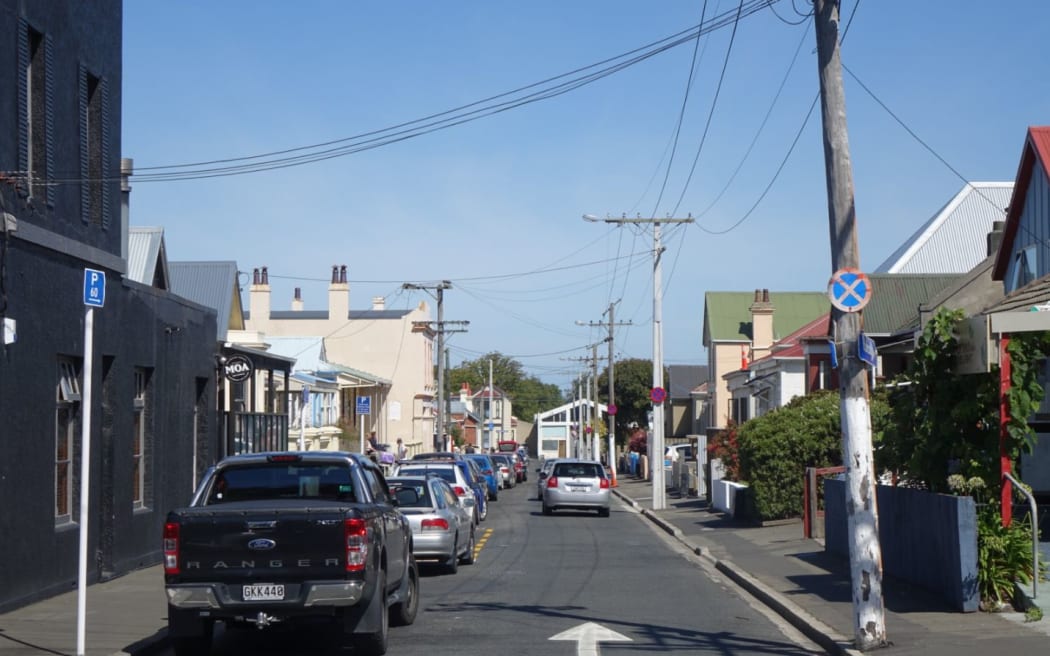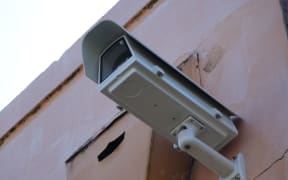Otago University is going ahead with its plan to install two dozen security cameras in streets where many of its students live.

The cameras will be installed in Dunedin streets including Hyde Street. Photo: RNZ / Ian Telfer
The university said the controversial plan is necessary to combat rising crime.
The university first revealed its plan for 50 cameras early last year in response to a spate of crime by and against students, but it has proved hard to get their support.
Referendums and feedback was split and the students' association lobbied for changes.
The university said it had listened, and is reducing the number in the first phase to 26 cameras to watch the main public student quarter streets of Castle, Dundas, Albany and Hyde Streets, though the cameras will have a higher resolution.
It said some of the camera feeds will be watched live by campus staff so they can respond to crime.
Otago University Students' Association successfully lobbied for changes after a student referendum narrowly opposed the CCTV plan, by 51 percent against to 49 percent for.
The association's president, Hugh Baird, has been won over by the changes, he said.
"We've been told it's not to catch students doing student things, and playing up," Mr Baird said.
"It's more for the serious crimes where there's people being assaulted or king hit, or sexually assaults, instead of the nudity or urinating on someone's fence."
He wanted fewer cameras in more strategic areas, and strong policy about who could view the recordings.
"There's been a lot of concern about the nature of the surveillance and people's privacy, but on balance they were needed, Mr Baird said.
"It would be great if there wasn't the need for them, but if they are going in there, it's great there are fewer cameras, less spots and better policy around who's viewing them and what they are picking up," he said.
Any visible areas of private homes and front yards will be blacked out on the cameras, Mr Baird said.




